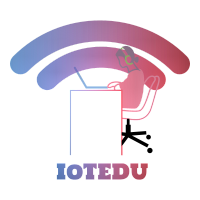There is no doubt that AI and IoT are one of the fastest-growing fields in the world. We all have are some or the other way dependent on jobs for our livelihood. This comes with a fear of losing our jobs. When it comes to AI there are two options to see the dark side which automatizes all the tedious tasks. The bright side which opens up ample opportunities for AI and IoT.
Deep learning is a superpower. With it, you can make a computer see, Synthesize novel art, translate languages, render a medical diagnosis, or build pieces of the car that drive itself. If that is not a superpower, I don’t know what is.
–Ng andrew
What is AI?
artificial intelligence (AI), sometimes called machine intelligence, is intelligence shown by machines, indifference to normal intelligence. Displayed by humans and animals. Casually, the term “artificial intelligence” is often used to describe machines that mimic “cognitive” functions. That human’s associate with the human mind, such as “learning” and “problem-solving”.
Companies such as Netflix, Baidu utilize machine learning to improve customer experience. Netflix’s movie recommendations are also powered by AI. The manufacturing sector also is automating their work to increase efficiency and optimize errors.
Future of IoT
IoT is kind of a hot word in today’s time people are always talking about breakthroughs in IoT. Industries are automatizing tedious work on a very large scale. So, it has become necessary for everyone to learn about IoT and IIoT. So, IoT in simple words is a bunch of devices connected with the internet and passing data to the cloud.
Ketan Kapoor, CEO & Co-founder, Mettl shared, “The IoT space is booming in India with about 65 percent of Indian start-ups working on it. The government is working to lay out regulations for machine-to-machine (M2M) communications. Once that happens. The sector will truly take off, and job opportunities will follow. For those who have the necessary technical knowledge and practical skills.”
Although being overcrowded, IT is still relevant across all industries, including banking and healthcare. IoT will bridge the gap between different verticals, creating an environment of greater interconnectivity among sectors with IT and digital technology being the common link.
Impact of AI and IoT in industries
Since the automatization of industries the skills required for jobs has vastly changed. Companies are longing for people doing creative work instead of tedious tasks. This situation is similar to that of the dawn of the industrial revolution. The invention of the steam engine robbed jobs of many horsemen. But it provided jobs for people who were willing to update their skills.
Similarly, this change (although this was nothing short of a revolution) instilled a fear of unemployment among masses. However, it opened many unexplored avenues of employment, to their relief. Employment opportunities opened in areas such as railroad management, fuel-related sectors, and track maintenance, etc.
New Opportunities In The Job Market
Non-digitalized objects are modified, enhanced for making them a part of the IoT environment. Once connected to the IoT network. Every device becomes uniquely distinguishable and can interact with millions of other gadgets that are part of the same system. For example, we can control heavy electronics like ca and refrigerators using mobile applications with IoT.
Perhaps, it is the IT sector job market that can expect the most influence during the coming years. Connecting all the devices around the world to the internet is a tedious task. This can be done through AI. The existing web data needs to be repackaged for making it consumable for IoT devices. So, during the next few years. Millions of new jobs are set to be created for IT professions who have data scraping skills. There would be a demand for thousands of IoT application development services once IoT starts spreading.
conclusion
High-skilled jobs are set to replace unskilled jobs due to the introduction of IoT. Thus, the workforce won’t have to worry if it starts expanding its skill sets. Perhaps, in the long run, the IoT would create more jobs compared to the numbers that it may take away.
Being worried about what the future holds for us is only natural. We need to realize that advancements are inevitable for humans to be able to explore the new horizons. What we need to do is to have the ability to flow smoothly with the currents of expertise. Acquiring increased knowledge related to the new fields spawning at every turn is integral in becoming successful.












